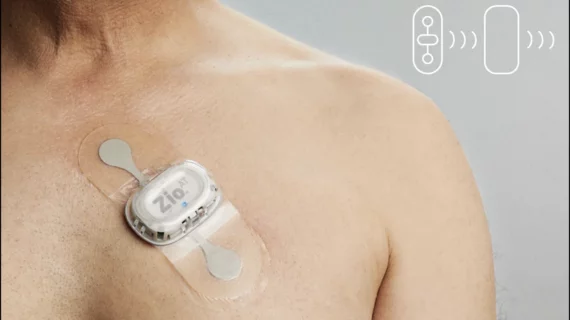FDA warning letter: iRhythm committed multiple violations, failed to report patient deaths in time
The U.S. Food and Drug Administration (FDA) sent a warning letter to iRhythm Technologies detailing several issues related to the company’s Zio AT mobile cardiac telemetry device. The letter was sent on May 25 and then published in full on the agency’s website on June 6.
According to the letter, iRhythm failed to report two patient deaths and other medical device reporting (MDR) violations to the FDA within the required 30-day window. The FDA also wrote that iRhythm marketed the Zio device under unapproved indications, made changes to the device without submitting the required paperwork, committed labeling violations and failed to address issues identified in multiple customer complaints.
“It is your firm’s responsibility to ensure compliance with applicable laws and regulations administered by FDA,” according to the warning letter. These issues, the agency added, “may be symptomatic of serious problems in your firm’s manufacturing and quality management systems.”
Key details from the FDA’s warning letter to iRhythm Technologies
The FDA toured iRhythm’s California headquarters in July and August 2022, communicating with the company about a variety of violations. The warning letter summarizes those violations and addresses iRhythm’s responses.
For example, the FDA’s inspection revealed that iRhythm received a “significant number of complaints” about a transmission limit that caused data to not be transmitted as intended. This issue should have been treated as a nonconformance, the FDA wrote, because it happened “more often than expected” and meant the device was no longer fulfilling its intended purpose of transmitting electrocardiogram data to physicians. However, iRhythm responded to the FDA’s initial report by saying the issue was a “design limitation and not a nonconformance.”
The transmission limit has been linked to multiple “significant arrhythmias” being missed, including two patient deaths. According to the FDA, iRhythm failed to report the two deaths within the required 30-day window.
Another key takeaway from the warning letter is that the Zio device was marketed under unapproved indications. It is approved by the FDA for the long-term monitoring of arrhythmia events in non-critical care patients where real-time monitoring is not necessary. However, iRhythm marketing materials advertise that the device can provide “near real-time monitoring” as a “mobile cardiac telemetry monitor” and provide notifications “immediately.” These claims suggest the Zio is approved for treating high-risk patients with near real-time monitoring—but that is not the case.
iRhythm has issued several responses to the FDA about these violations. Many of those responses were adequate, the agency ruled, but other responses suggest that more reporting and other changes may still be necessary.
iRhythm responds to the FDA’s warning letter
iRhythm responded to these ongoing issues in a recent filing with the SEC. The filing was signed by chief financial officer Brice Bobzien.
“The company takes these matters very seriously,” according to the filing. “The company intends to respond within the specified time period and work diligently to address the FDA’s concerns.”
iRhythm also wrote that the warning letter “does not directly restrict the manufacture, production or shipment of any of the company’s products” or “require the withdrawal of any product from the U.S. marketplace.”
“At this time, the company believes that its receipt of this warning letter, without further adverse action initiated by the FDA, will not have a material impact to the company’s financial results,” according to the filing.
The full letter is available here.

